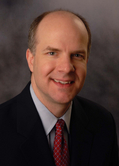| Abstract: |
Background: Sexual Medicine Society of North America (SMSNA) fellowships offer variable experience in sexual health domains: erectile dysfunction, Peyronie’s disease, male infertility, male hypogonadism (low testosterone), reconstruction (including male incontinence), benign prostatic hyperplasia, gender affirmation surgery, sexual mental health, and female sexual dysfunction. Aim: To evaluate baseline and postbootcamp understanding and trust in these domains. Methods: In 2023, 28 of 31 urologists currently enrolled in SMSNA-endorsed fellowships participated in a 3.5-day training bootcamp in Minneapolis, Minnesota. Participants were asked to complete pre- and postbootcamp surveys. The bootcamp curriculum offered American Urological Association guidelines and case-based lectures, hands-on clinical training with cadavers (penile surgery) and models (collagenase training), and interaction with industry. Outcomes: Changes in knowledge, independence, and trust in performing the procedures, as well as billing issues and feedback for future bootcamps. Results: Prebootcamp surveys revealed vastly varied residency experience. Reported time with an expert faculty member was greatest for benign prostatic hyperplasia and least for female sexual dysfunction, gender affirmation surgery, and low testosterone. The lowest prebootcamp confidence in performing surgery independently was for penile grafting procedures and elevating the neurovascular bundle. Postbootcamp results revealed several areas of significant improvement in confidence (P ≤ .03): intralesional injections for Peyronie’s disease, manual modeling, penile plication, penile grafting procedures, and elevating the neurovascular bundle. There was a trend for improved confidence with the insertion of inflatable (P = .05) and semirigid (P = .08) penile prostheses. Nonsignificant improvement occurred in artificial urinary sphincter surgery (P = .12). Participants graded the bootcamp very highly and requested that next year’s bootcamp have more content on female sexual dysfunction, male incontinence, and low testosterone, as well as more hands-on skills sessions and case-based lecture formats. Clinical Implications: Offering a bootcamp with hands-on instruction could significantly improve urologists’ knowledge and confidence. Strengths and Limitations: As the main strength, this study was the first specialized bootcamp for urologists in the subject of men’s health, taking into account hands-on and cadaver laboratories, as well as highlighting industrial and pharmaceutical products. The small sample size was the major limitation. Conclusions: Current SMSNA fellows present with varied levels of experience and confidence across sexual health domains. Notable confidence improvements were seen with topics that combined didactic lectures with hands-on trainings. © The Author(s) 2024. |



